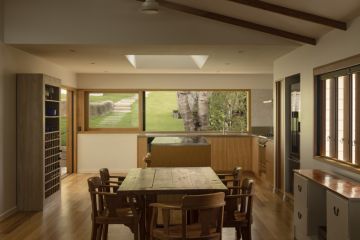Can you be better off renting?

It’s the great Australian dream: buying a property, settling down and watching its worth grow over time while chipping away at the mortgage. And there has long been an assumption that people who buy will be better off financially in the long run than those who rent.
However, a recent paper by the Reserve Bank of Australia (RBA) gives new hope to renters. The study looks at how Australian house prices have fared since 1955 and uses those findings to compare whether – from a purely financial perspective – you’d be better of renting real estate or buying.
Fascinating findings
What might surprise many given the recent boom in prices is that the study found that house prices have increased at an average annual rate of slightly less than 2.5 per cent since 1955. If prices continue to increase at this same rate in the future, RBA researchers conclude that homes will be “fairly valued”.
However, they also noted that forecasting the growth of house prices is subject to considerable uncertainty. “Many observers have suggested that future house price growth is likely to be somewhat less than this historic average,” the report reads. “In that case, at current prices, rents, interest rates and so on, the average household is probably financially better off renting than buying.”
Buying = bad?
So, does that mean you’ll end up worse off if you buy? Not necessarily. The paper did not take into account the intangible benefits of buying, such as security of tenure, freedom to renovate, access to finance and pride of ownership. It also treated house prices across the nation as though they move in unison, when in fact the housing sector is many markets operating at the same time, with capital growth varying greatly across Australia. A range of factors influence prices, including local economic activity, housing supply and population growth.
Domain Group’s senior economist Andrew Wilson weighs in
According to Wilson, Australia’s connection to home ownership has remained rock-solid for generations, with home-ownership rates hovering around 70 per cent for more than 50 years. And this strong and unwavering connection to ownership has survived the ebbs and flows – booms and busts – of the housing cycle for decades.
“The tax-free capital-gains status of the family home remains the primary financial driver of home ownership and, given the political implications, this policy is set to remain over the long term,” Wilson says.
Lower prices growth, if that occurs, says Wilson, will only act to consolidate home ownership by improving affordability and providing more certainty over shorter-term price outcomes. Lower prices growth may also act as a disincentive for investors who typically constitute a significant proportion of the housing market. Reduced activity from speculative home investors would result in less competition in the housing market for owner-occupier buyers – particularly at the entry level.
But, he says, financial advantages are not the only drivers of home ownership, with strong underlying cultural connections from diverse ethnic backgrounds. “The Australian truism that ‘rent is dead money’ reflects and validates the robust underlying culture of home ownership in this country, which is set to continue to survive house-price fluctuations for the long term.”
According to Wilson, financial imperatives will remain firmly fixed on access to the market for ownership rather than on a choice between tenure types – renting or buying.
When choosing what’s right for you, the decision won’t be cut-and-dried. It will take into account myriad factors – where you like to live, what you can afford, what your financial goals are and whether you enjoy having full control over the property. At the end of the day, the decision about where and how you’ll live comes down to what suits you best.
We recommend
We thought you might like
States
Capital Cities
Capital Cities - Rentals
Popular Areas
Allhomes
More







